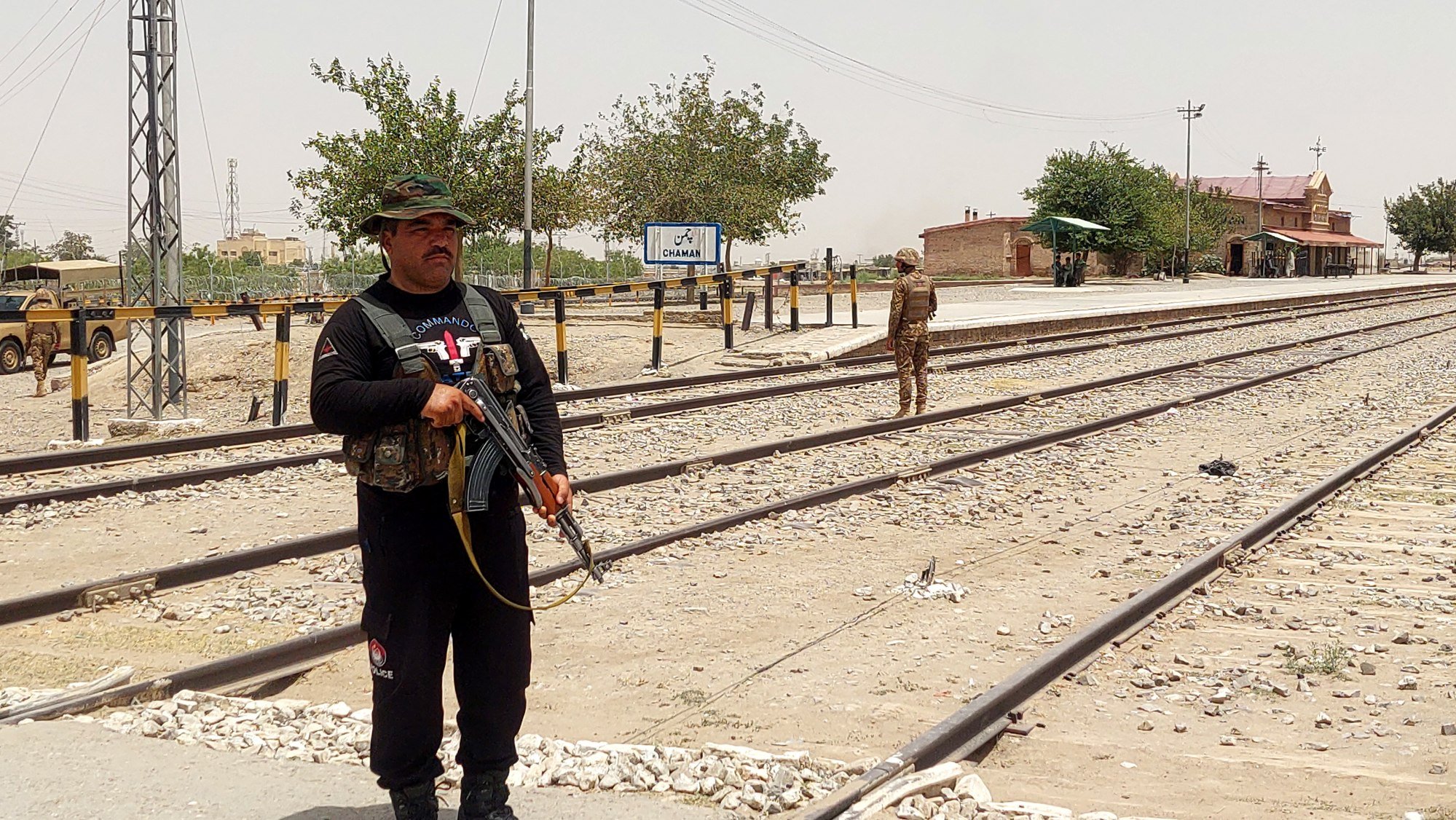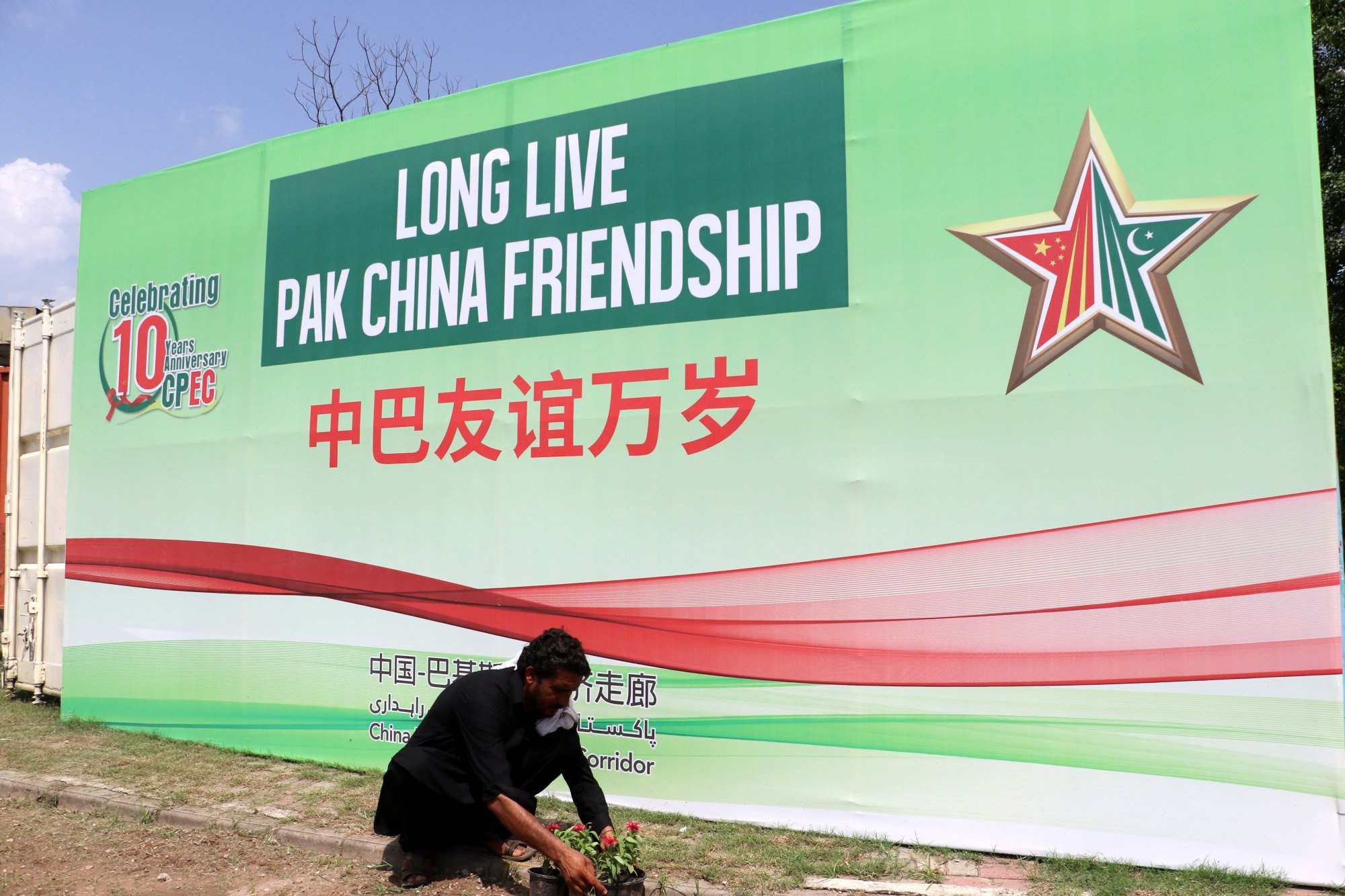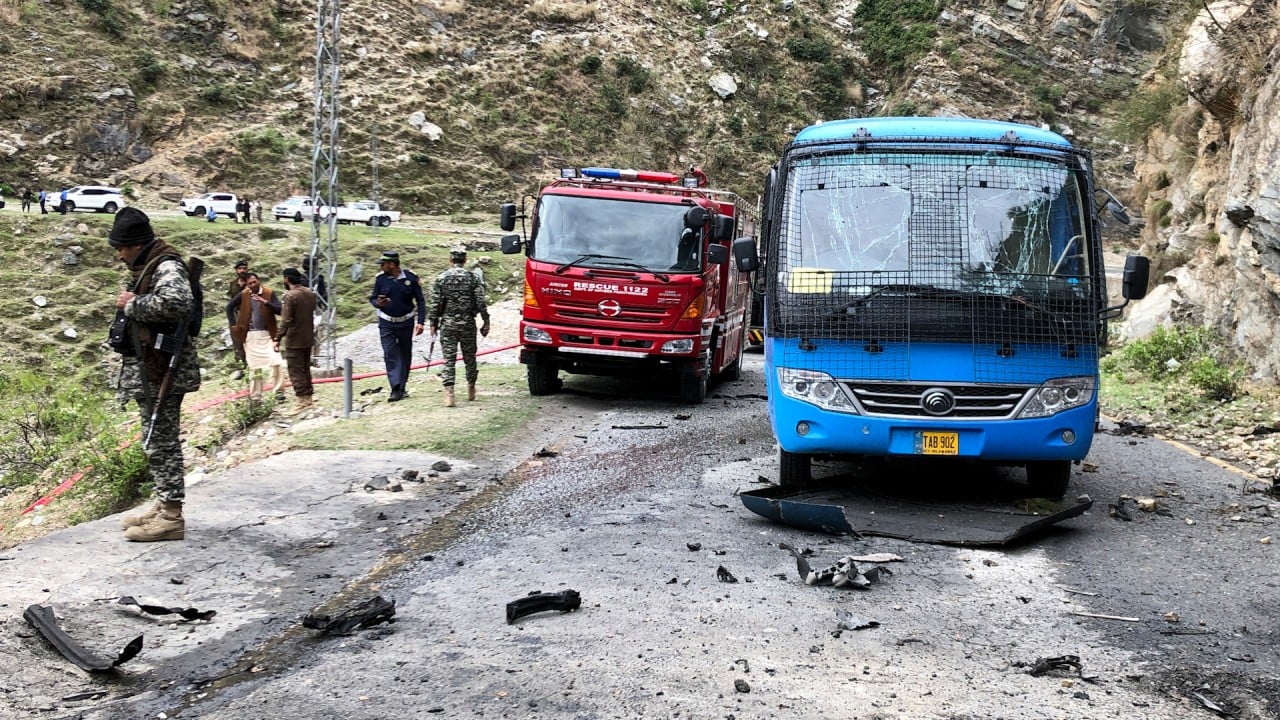Beijing effectively recognised the Taliban regime by accepting the diplomatic credentials of its envoy in February.
Police officials told This Week In Asia last month that their investigations found that the so-called ‘broken switch’ faction of the TTP had launched the terrorist attack from its camps in Khost province in eastern Afghanistan.
They also held the cell responsible for a practically identical attack in July 2021, which also targeted employees of Wuhan-based China Gezhouba Group Co working on the same World Bank-funded hydropower project at Dasu. Nine Chinese nationals and four of their Pakistani colleagues were killed in that attack.
Pakistani journalist Nusrat Javed last month reported that Beijing had asked the Afghan Taliban regime to either “push the TTP into Pakistan or tighten the leash” as a precondition to the Chinese investments in Afghanistan that it is actively seeking.
Chinese diplomats had recently talked up the prospects of Beijing investing in Afghanistan’s mineral and power sectors, he said, but had also expressed deep concerns about the presence of the Pakistani insurgents, along with the Taliban’s arch-rival Islamic State-Khorasan (Isis-K).
Beijing has similar concerns about the Uygur militants of the al-Qaeda affiliate Turkistan Islamic Party who are also protected by Kabul, although they have not staged any cross-border attacks on the Chinese region of Xinjiang.
The security threats posed to China’s interests in Afghanistan and Pakistan’s adjacent northwest Khyber Pakhtunkhwa province are matched – if not exceeded – by those it faces in Pakistan’s western Balochistan province.
The restive province is home to the Chinese-operated port of Gwadar, the cornerstone of the envisioned US$65 billion China-Pakistan Economic Corridor (CPEC) linking it overland to Xinjiang.

Pakistani authorities had in recent months asked Chinese diplomats and executives to “stay away” because of the threat posed to them by ethnic Baloch insurgents fighting for independence from Pakistan and Iran, said another well-placed source in Islamabad, who also asked not to be named.
China’s security concerns took centre stage during talks in Beijing last week between Foreign Minister Wang Yi and his visiting Pakistani counterpart Ishaq Dar.
A joint official statement issued after their talks on May 15 said Pakistan, ‘in keeping with its ironclad friendship with China … would hunt down the perpetrators [of the terrorist attack in March] and bring them to justice”.
Pakistan would also “take more effective security measures, and make all-out efforts to ensure the safety of Chinese personnel, projects and institutions in Pakistan”, the statement cited Wang as saying.
Without mentioning Afghanistan, Wang said that Beijing “is willing to further deepen counterterrorism security cooperation” with Islamabad.
Wang did not elaborate, but Beijing has been pressing Pakistan to allow the deployment of Chinese security personnel in the country since the July 2021 suicide bombing.
“China will be looking for results on the ground, and that entails no more attacks,” said Michael Kugelman, director of the South Asia Institute at the Wilson Centre, a Washington think tank.
“There’s a lot at stake here for Islamabad” because China has become “one of the biggest foreign targets of terrorism” in Pakistan, while also being the “top partner and source of assistance for Islamabad”, he said.
If the terrorist attacks were to continue in the coming months, “we can’t rule out Beijing bringing its security forces into Pakistan to provide protection”, Kugelman said. That would be an “embarrassment” for Pakistan’s security forces, he added.
Crucially for Pakistan’s economy, which narrowly avoided a Sri Lanka-style default during the past two years, China committed to renewed investments in Pakistan under the second phase of CPEC during Dar’s visit last week.
Senator Mushahid Hussain Sayed of the ruling Pakistan Muslim League-Nawaz party said it was “good that there’s consensus” to upgrade CPEC, but advised the government to “heed the frank words” of the Chinese foreign minister and “make every effort to eliminate the worries of Chinese enterprises and personnel”.
“Pakistan’s promises of foolproof security and a one-window operation [for Chinese investors] need to be made operational,” Sayed said.

Maleeha Lodhi, a former Pakistani ambassador to Britain, the UN and the United States, said Dar’s visit had “credibly assured China” that Islamabad would address its security concerns about Chinese workers in Pakistan.
“The fact that the second phase of CPEC is on course testifies to China’s confidence in this regard,” Lodhi told This Week In Asia.
She said Pakistan’s deteriorating relations with Kabul would not affect its ties with China.
The two countries “may have different approaches” toward the Taliban authorities because “their concerns and stakes are different, but that doesn’t in any way bear” on the Pakistan-China strategic relationship, Lodhi said.
Kugelman argued that the Afghanistan factor could help China-Pakistan relations.

“The interests of China and Pakistan are both well served by seeing a reduction in Afghanistan-based terrorism threats,” he said.
Pakistan and China may also be keen to extend Beijing’s Belt and Road Initiative to Afghanistan, he said.
But both the TTP and Islamic State-Khorasan (Isis-K) would pose threats to both countries in Afghanistan if China and Pakistan were to establish a bigger presence on the ground there.
“Beijing’s relations with the Taliban are smoother than Pakistan’s are right now,” while China has leverage over the Taliban because of “its capacity to deploy capital in Afghanistan that the Taliban would like to see”, Kugelman said.
China could take the opportunity to persuade the Taliban to take firm measures to tackle the TTP problem, according to Kugelman.
“Such an attempt would certainly be appreciated by Islamabad and could give a boost to China-Pakistan relations.”


